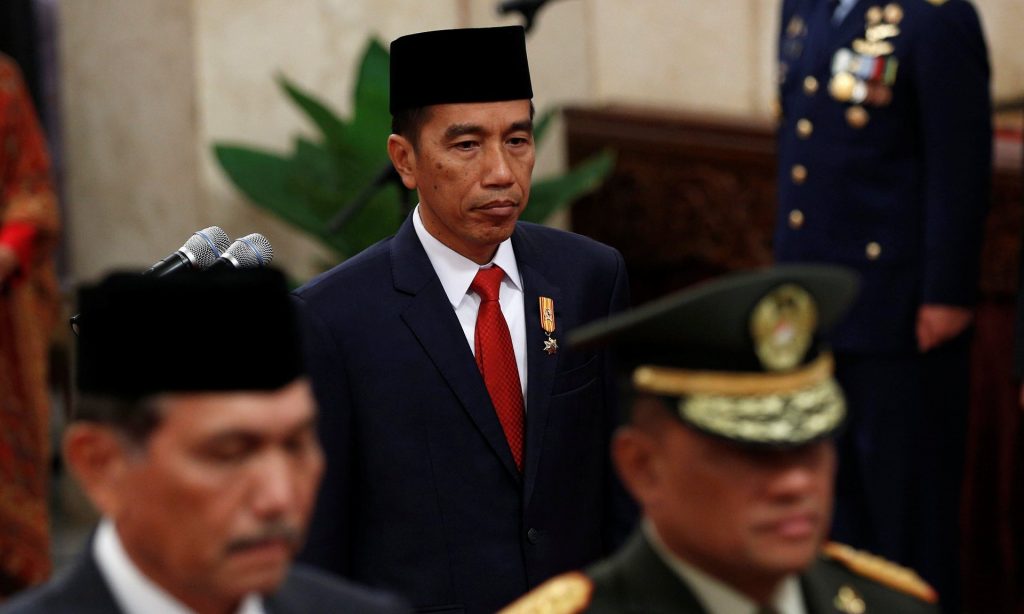
Photograph: Darren Whiteside/Reuters
The next round of executions in Indonesia appear imminent following the transfer of an Indonesian woman on death row, Merri Utami, to the execution island of Nusa Kambangan.
Ordinarily female prisoners are not held at Nusa Kambangan, the prison site in central Java where Australian nationals Andrew Chan and Myuran Sukumaran were executed alongside six others in April last year.
Utami was transferred in the early hours of Sunday under high security from Tangerang prison where she has been detained since 2004.
Merri has been placed in an isolation cell and is reportedly the only female inmate being held alongside more than 1,000 people there.
According to Amnesty International, at least 165 people are on death row in Indonesia, and more than 40% of those convicted of drug-related crimes.
Merri’s transfer echoes previous patterns and could indicate the next round is less than a week away, Ricky Gunawan, the director of the Community Legal Aid Institute (LBH) in Jakarta, told the Guardian.
“It’s the same like Mary Jane Veloso, she was transferred just days before the notice of the executions was given,” said Gunawan of the Filipina woman who was granted a temporary, last-minute reprieve last year.
In January last year another Indonesian woman on death row, Rani Andriani, was also moved to Nusa Kambangan just days before she was executed.
Prison officials at both Nusa Kambangan and Tangerang prisons have denied Utami’s transfer was linked to executions, but the move does not appear to be routine.
“It could be routine. But with only one transfer, of one prisoner, it doesn’t seem to fit the pattern of routine transfers,” noted Gunawan.
Utami was sentenced to death for carrying 1.1 kilograms of heroin through Soekarno Hatta airport in 2003.
One inconsistency is that Utami claims she is yet to seek clemency for her charges. Under Indonesian law all legal avenues must be exhausted before an inmate can be executed.
But moving prisoners could be one strategy the Attorney General’s Office is employing to speed up clemency claims and clear any legal roadblocks, explained LBH’s Gunawan.
As well as the transfer of Utami, there are other indications Indonesia is once again readying its firing squads, after 14 prisoners were executed in two separate rounds last year.
The embassies of Nigeria and Pakistan have in recent days received letters from the Indonesian foreign ministry informing them their nationals will be “executed in the very near future”, sources close to the Guardian confirmed.
The one Pakistani national on death row here is Zulfiqar Ali. Ali was violently beaten by Indonesian police, later requiring kidney and stomach surgery, until he confessed, said Amnesty International in a 2015 report titled “Flawed Justice”.
The international rights body claimed that half of all prisoners facing capital punishment in Indonesia were subject to police brutality and torture, while foreign prisoners were often denied an interpreter or access to consular services.
President Joko Widodo has reiterated his commitment to his war on drugs and in recent months the Attorney General’s Office has confirmed more executions will take place this year.
Attorney General General HM Prasetyo has stated that executions would take place after Idul Fitri, which happened earlier in July.

